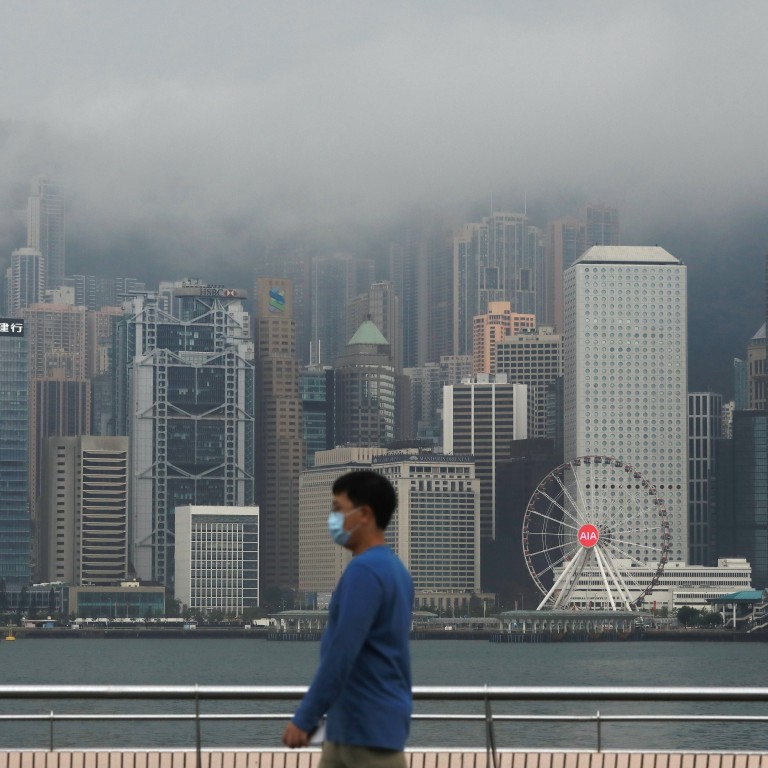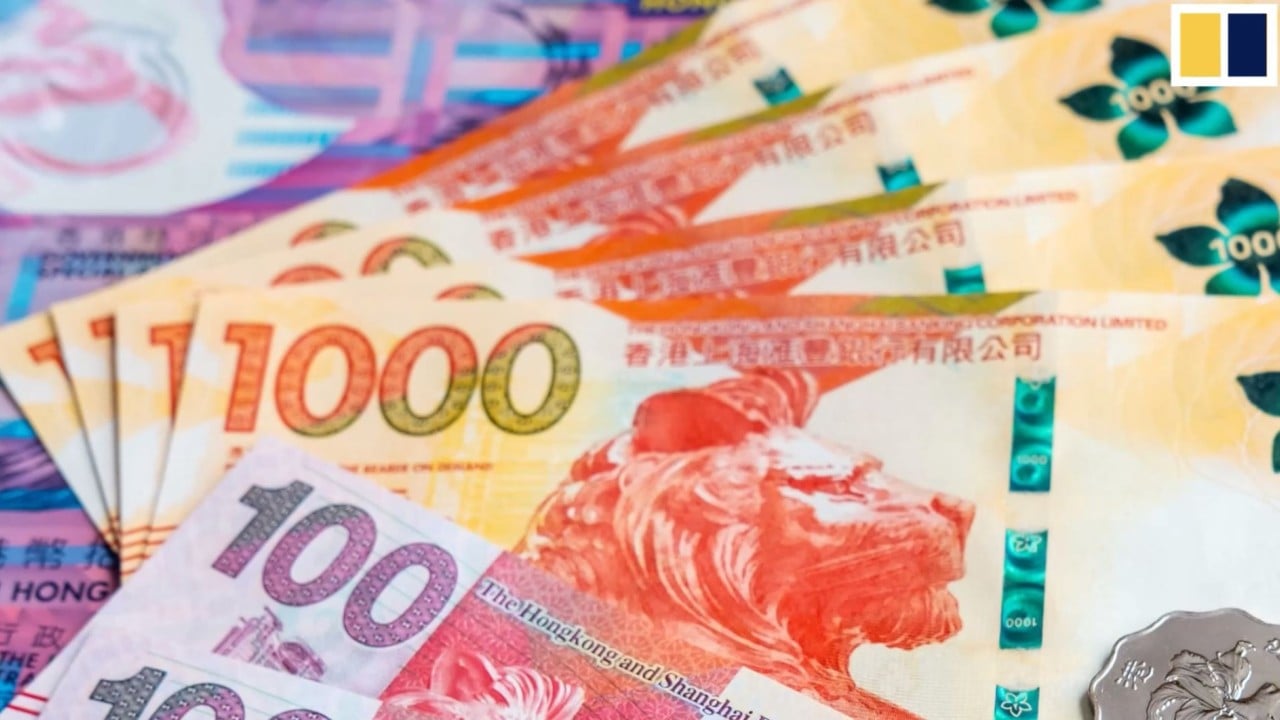
Hong Kong security law: any US attempt to destroy city’s financial hub status would be a challenge, analysts say
- Hong Kong’s financial industry closely watching fallout from China’s imposition of security law on city
- US moves to undermine Hong Kong dollar peg or city’s status as financial hub would be difficult, analysts say
Hong Kong is unlikely to see mass relocations of financial firms over China’s plans to impose a security law on the city, though many in the sector are watching keenly for more details, analysts said at a South China Morning Post webinar on Friday.
The Trump administration has said it will revoke Hong Kong’s special trade status over the legislation, possibly paving the way for sanctions.
However, US sanctions on China for imposing the law would be a “lose-lose” proposition that would be difficult to implement in practice, said Louis Kuijs, head of Asia Economics at Oxford Economics.
There is a war chest of Hong Kong for US dollars that is supporting Hong Kong's peg … it would not be even so easy for the US to take measures to try to destroy it
Hao Hong, head of research and chief strategist at Bocom International, said investors were waiting for more information, but any move to destroy Hong Kong’s status as a financial hub would be a “challenge”.
“The Hong Kong peg had existed for nine years before the US government enacted a law that supported free exchange in Hong Kong,” Kuijs said.
“There is a war chest in Hong Kong of US dollars that is supporting Hong Kong’s peg … it would not be so easy for the US to take measures to try to destroy it.”

01:43
What is the Hong Kong Dollar Peg?
On Friday, Hong Kong’s monetary authority sold almost HK$1 billion (US$129 million) worth of Hong Kong dollars in an effort to rein in the local currency, which had strengthened above the top end of its trading band against the US dollar by an influx of so-called hot money ahead of several blockbuster initial public offerings on the local stock exchange.
Analysts said the move shows there has not yet been capital outflow from the financial hub.
Kuijs said he was very “sceptical” about Hainan’s ability to challenge Hong Kong. It would more or less face the same fate as Shanghai as capital account control is still one of the biggest policy issues China has to solve – something that does not apply to Hong Kong.
If you look at every single one of those options, they are not appealing to anyone, even to the US. So, I will say that will be a lose-lose situation
A bipartisan bill introduced by two US senators last month would place sanctions on Chinese officials and banks that do business with entities deemed to be in violation of Hong Kong’s Basic Law, the mini-constitution agreed upon between Britain and China for the city after the handover.
Still, sanctions against Hong Kong or the Chinese financial system have been deemed a “nuclear option” by many analysts.
Blocking Chinese banks from the US dollar clearing system would be challenging as Chinese banks in Hong Kong that settle trades in dollars, especially Bank of China, are all registered for the function, Hao said.
“If you look at every single one of those options, they are not appealing to anyone, even to the US. So, I will say that will be a lose-lose situation,” Hong added.

